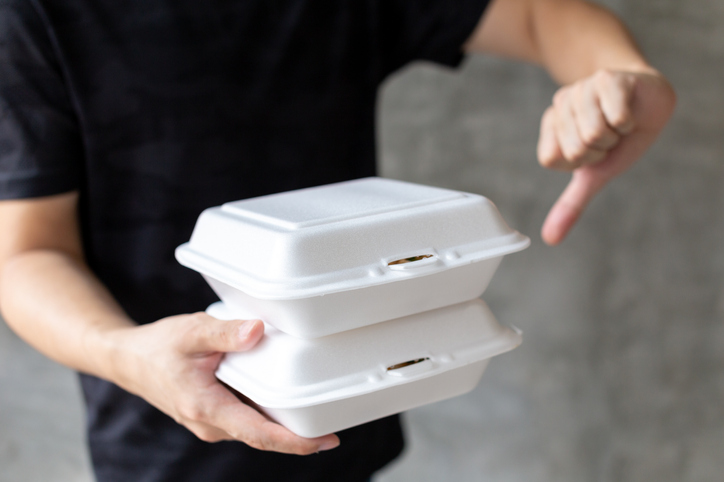Nassau County lawmakers approved a measure banning businesses from using styrofoam containers that are commonly used to pack food in take-out restaurants.
Legislators unanimously voted Monday in favor of the ban, which gives local businesses until January 2020 to use up their reserve of styrofoam containers and stock up on alternatives. Nassau County Executive Laura Curran is expected to sign the bill into law.
“We’ve heard about the dangers of polystyrene foam for years now, and it’s time we take action,” said Legis. Laura Schaefer (R-Westbury), who co-sponsored the bill. “These containers pollute our environment and clog our waterways. Enough is enough.”
The bill’s passage comes after Suffolk County and New York City also banned styrofoam and New York State banned plastic bags. Some fast food chains, such as Dunkin’, have voluntarily begun transitioning away from using styrofoam containers.
Polystyrene Foam, better known by the brand name styrofoam, has been classified as a possible carcinogen, and the non-biodegradable containers made from it create tons of hazardous waste and environmental pollutants, lawmakers said. There is no practical method for recycling polystyrene foam, and when it’s incinerated, toxic fumes are released into the environment, officials noted.
“Enough alternative biodegradable food service items are readily available for use, making polystyrene no longer necessary,” said Legis. Denise Ford (D-Long Beach). “This law will reduce the waste stream in Nassau County and provide commensurate reductions in waste disposal costs. Further, it will stop clogging our waterways and better protect our natural environment.”
Businesses that violate the ban will face fines from the Office of Consumer Affairs. The money from those funds will provide for environmental investigation and cleanup of Nassau properties, officials said.
“Like disposable paper and plastic bags, single-use styrofoam products and packing materials pose a grave environmental threat,” said Legis. Debra Mulé (D-Freeport). “Styrofoam does not break down naturally, cannot be recycled effectively and creates toxic fumes when incinerated. Fortunately, there are proven solutions and sensible alternatives.”


































